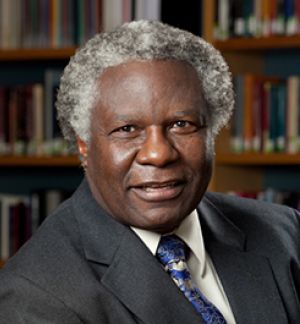The earthquake that hit East Africa last week is a grim reminder of the vulnerability of human populations to natural disasters.
The East African Community should treat the earthquake as a wake-up call and initiate urgent measures aimed at enhancing human safety and providing leadership on regional responses to human challenges.
It is not possible to avert earthquakes, but society can reduce their impact through collective learning. Each earthquake is both a disaster and an opportunity to improve on safety.
Sadly, current global disaster management efforts put too much emphasis on humanitarian responses and too little on preparedness and collective learning.
Emphasis on relief tends to focus attention on major catastrophes at the expense of less dramatic events. But all these events offer equal opportunity for safety improvement through assessments, research and safe housing standards.
Disaster management is increasingly being defined as a knowledge-based activity requiring extensive co-operation among a diversity of national, regional and international research-related organisations.
According to the World Disaster Report 2005, disaster data has become a key tool for identifying disaster impact trends and tracking links between development and disaster risk. These databases are essential for co-ordinating international responses and help set risk reduction strategies.
WHILE DATA collection has significantly improved over the past two decades, major challenges related to systematic and regular data collection, standardisation and accessibility still remain. Addressing these challenges will require concerted action, starting at the regional level. Institutions such as the EAC can, therefore, play a key role in setting new safety standards.
The legislative basis for this already exists. The 1999 EAC Treaty calls upon member states to "take necessary disaster preparedness, management, protection and mitigation measures, especially for the control of natural and manmade disasters. These include oil spills, bio-hazards, floods, earthquakes, marine accidents, drought and bush fires." But realising this goal will require member states to delegate the requisite authority and technical backstopping to the organisation.
The EAC is well-placed to help formulate regional standards in co-operation with international bodies. Though its focus is on trade-related standards, there is scope to extend the mandate to fields such as human safety.
But where can the EAC start? Excellent lessons can be drawn from the International Civil Aviation Organisation, which now puts human safety above national sovereignty and is the world leader in setting international standards on safety.
In 2002, ICAO launched its Universal Security Audit Programme to enhance global aviation security. The audits identify deficiencies in aviation systems and provide recommendations for their mitigation or resolution. The programme offers technical assistance to developing countries to help meet international safety standards.
Annually, ICAO conducts three to four such audits around the world and expects to complete the initial audit of its member states by 2007. ICAO’s audits are mandatory and are taken seriously. The availability of technical assistance makes them acceptable as a fair standard of balancing international safety standards with local resource limitations.
The starting point would be to create expert committees from member states and observers to carry out assessments of earthquakes and provide recommendations for action. The recommendations would form a basis for adapting new housing safety standards.
A related issue is enforcement. Many will argue that there is no need to set standards if they cannot be enforced. This argument ignores the learning impact associated with setting standards. One way to approach this is to carry out safety audits in vulnerable areas, especially cities.
Such safety audits would identify limitations in current construction codes and also examine the strengths and weaknesses of existing implementation mechanisms. Much of the technical expertise needed to implement such a safety regime is available in local universities. Additional support can be obtained through partnerships with universities and research institutions in other countries.
COUNTRIES SUCH as the US, Japan and others that are providing international leadership in disaster management could be a critical source of support. This could be done in co-operation with the United Nations Educational, Scientific and Cultural Organisation.
Experience gained though such activities can then be used to contribute to the activities of UN agencies. More specifically, agencies like the Nairobi-based UN Centre for Human Settlements (UN-Habitat) could play a key role in providing technical assistance for the implementation of new safe housing standards. Such activities would be in line with Habitat’s mandate to protect and rehabilitate housing, infrastructure and public facilities.
The agency is also charged with providing technical and policy support to humanitarian agencies before and after human settlement crises.
Equally important is the role of the United Nations Environment Programme (Unep), which could play a key role in rallying expertise in universities from all over the world.
For example, Unep could leverage the support of institutions such as the Swiss Federal Technical Institute in Zurich, with which it recently signed a memorandum of understanding.
Calestous Juma is professor of the practice of international development at Harvard University’s Kennedy School of Government.
Juma, Calestous. “Quake is a Wake-Up Call for East Africans.” The East African, December 12, 2005



